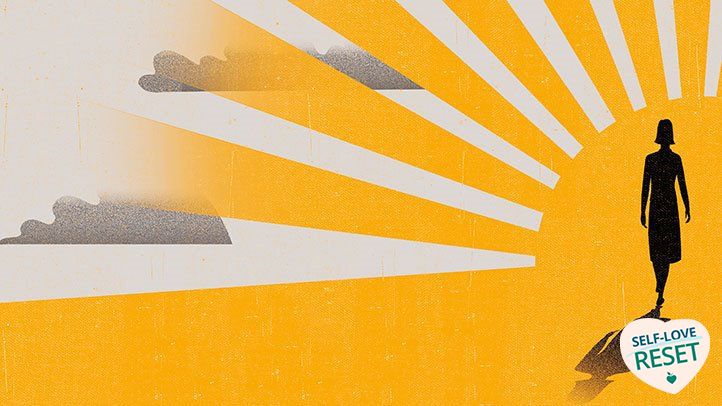Everyone has, at one point in life, experienced difficult situations. It could be sickness or joblessness, and your friends can urge you to keep strong and resilient to bounce back as if nothing happened.
But what does resilience mean, and what’s its importance? We’ll help you understand all these in this article.
How To Understand What Resilience Is
Resilience is how fast you can recover from difficult times in your life resulting from stress and trauma. To be resilient, you’ve got to develop your inner strength to overcome challenging life experiences.
Being Resilient doesn’t mean you don’t face various difficulties in life like stress and emotional upheaval. Instead, you can use your strength to overcome such situations. Remember, resilience levels differ from one person to the next, and it also changes and develops throughout an individual’s life.
Importance Of Resilience
Resilience in life is important as it benefits individuals’ well-being and development. It helps you overcome difficult situations that could have otherwise knocked you off. It also allows you to create a balance, especially during stressful times, which is crucial for mental health.
Being resilient is good if you’re a student as it will enable you to improve your studies/ academics. Moreover, your risk-taking behaviors will reduce, and you will not have to depend on alcohol, smoking, or using hard drugs to cope with the hard times in your life. You will also reduce your chances of being absent from work as your sickness levels will be lower. Your family bonds will improve while your mortality rate lowers seeing you enjoy life for long.
Types of Resilience
The different types of resilience include;
Emotional Resilience
Emotional resilience is virtual for individuals as it helps in difficult times. Emotional resilience enables you to overcome stress as it helps you understand your shortcomings and prowess. It’s the ability to change your negative moments into positive vibes.
It makes you calm down your mind and emotions when facing challenges. Understanding that such challenges are here for a short time is an advantage for having emotional resilience.
Physical Resilience
Physical resilience is how your body reacts to changes and recovers from illnesses and injuries and also plays a role in how you age. It’s important for your overall health and how your body structure.
Note that you can improve your physical resilience by living healthily. Ensure you get enough sleep and exercise regularly.
Mental Resilience
This world is full of uncertainties, so you need mental resilience to overcome such extremes. Mental resilience will enable you to adapt to different situations due to changes. If you’re mentally resilient, you’ll be able to withstand tough times by staying calm and flexible. Such ability will also help you move forward, be hopeful and solve difficult problems easily.
Social Resilience
Social resilience is important for groups who have been under a lot and want to be overcomers. It enables groups of people to recover from challenging circumstances as it involves working together to solve individual and group problems.
Social resilience helps groups support each other after a disaster, know the risks within the community, and excel socially as a group. It’s a good spirit for the community in times of natural disasters that affect a bigger section/area.
How To Upgrade Your Resilience
As you know, resilience is something you can change and develop all through your life. If you want to improve your resilience level, consider doing the following;
Use Your Strength
One of the simplest ways to grow your resilience is using your strength. You can know your strength after understanding yourself. Take time to understand your fears but concentrate on your accomplishment and strengths. This will enable you to be strong and face challenges with courage as you know your capabilities.
Learn How to Deal with Stress
Stress can interfere with your mind and render you useless if you don’t take the necessary steps, as it keeps you anxious and worried. To be a victor in times of stress, learn how to manage it and stay calm. Stay positive and avoid negative thinking all through. You can exercise, go for a walk, pray or meditate to help deal with your stress.
Cortisol Low
Additionally, you need to keep your stress hormone (cortisol) levels low. Cortisol, manufactured in the adrenal glands, increases when you’re anxious/stressed but reduces when you’re relaxed. So, you need to work on managing your stress triggers to keep cortisol low, like exercising regularly and having enough sleep.
You should also strive to reduce the cortisol levels as elevated cortisol contributes to poor testosterone affecting your reproductive life. This will make you seek medical attention, and your doctor will prescribe hormones like synthetic testosterone or Humatrope. Such drugs will help save your situation, but it’s advisable to do a purchase of Humatrope only with a legal prescription, to avoid affecting your health.
Physical Activity Is the Basis of Resilience
You also need to exercise regularly to keep your stress levels down. Do jogs in the evening or walk and run to lower your stress levels. You can consider enrolling in a gym or being part of your local team building.
Connect With People and Get Moral Support
There is power in having human contact when under stress. The best way to achieve this is to connect with people to get moral support. Don’t fear to share your agonies and talk when you feel overwhelmed.
Conclusion
Resilience will help you face the challenging situations you’ll encounter in life. You will succeed after improving your emotional, physical, and mental resilience levels. However, you need to work on your strengths, learn how to deal with stress, and connect with people to achieve this.
